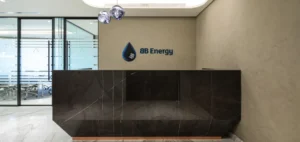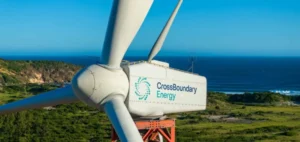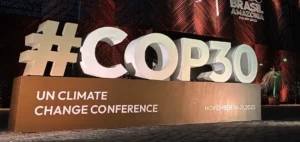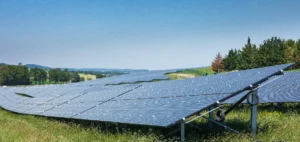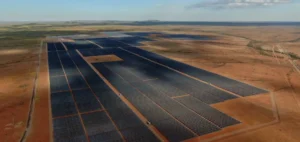After lengthy talks, EDF reached an agreement with General Electric on Friday to take over part of its nuclear business, two days after the French government presented measures to facilitate the construction of new nuclear reactors.
The two groups have signed “a definitive agreement for the acquisition by EDF of GE Steam Power’s conventional island activities” for future nuclear power plants, particularly in France, where turbines are the main component, EDF announced in a press release.
“These activities include the supply of equipment for new nuclear power plants, including Arabelle turbines, as well as maintenance and equipment upgrades for existing nuclear power plants outside the Americas,” EDF said.
“GE Steam Power’s steam turbines can be used in EPR and EPR2 (European Pressurized Reactor) reactors as well as SMRs (Small Modular Reactor),” the energy company said.
This transaction will enable EDF “to master the technologies and skills relating to the conventional island of nuclear power plants, which are essential for the sustainability of the existing nuclear fleet and future projects”, the group says.
While the need for electricity will grow as the country moves away from fossil fuels, the executive is supporting the construction of six new-generation EPR reactors, with an option for eight more, in parallel with the development of renewable energies, primarily solar and offshore wind.
The completion of the acquisition is “envisaged in the second half of 2023”, after the usual conditions precedent have been met and the required regulatory approvals obtained.
The announcement of this agreement comes two days after the presentation to the Council of Ministers of a bill to accelerate the construction of new nuclear reactors.
In February, the two groups had synchronized the announcement of a prior “exclusivity agreement” with President Emmanuel Macron’s presentation in Belfort of France’s energy strategy, the very place where the giant Arabelle turbines are manufactured. These turbines are used in French power plants, using steam from nuclear reactors to turn the alternators that produce electricity.
Fears for employment
The sale in 2015 of the activities that formed the energy branch of Alstom to the American General Electric, when Emmanuel Macron was Minister of Economy, had caused intense controversy.
The announcement also comes at a time when EDF is in the midst of a renationalization process, a 9.7 billion euro operation launched on October 4 by the government to relaunch a vast nuclear program after a dark year for the group.
The energy company is facing a drop in its electricity production to a historically low level due to the unavailability of nearly half of the 56 reactors in its nuclear fleet, shut down for scheduled maintenance or suspected or proven corrosion problems.
The group revised Thursday evening once again downward its estimate of nuclear production for the year 2022, due in particular to a longer than expected shutdown of four reactors.
Taking note of the agreement, the CGT federations of energy and metallurgy, demanded Friday “the clarification of the industrial project that wishes to carry the EDF group with GE Steam within it. They intend to address “these essential strategic questions as soon as the future CEO, Luc Rémont, who is familiar with the history of the file and whose appointment is being finalized, takes up his duties.
During the controversial 2014 sale of Alstom’s energy business to GE, he was advising Alstom as a banker at Bank of America Merrill Lynch.
According to Christian Mougenot, CFDT GE Steam Power delegate in Belfort, 300 jobs are threatened in Europe as part of this acquisition.





